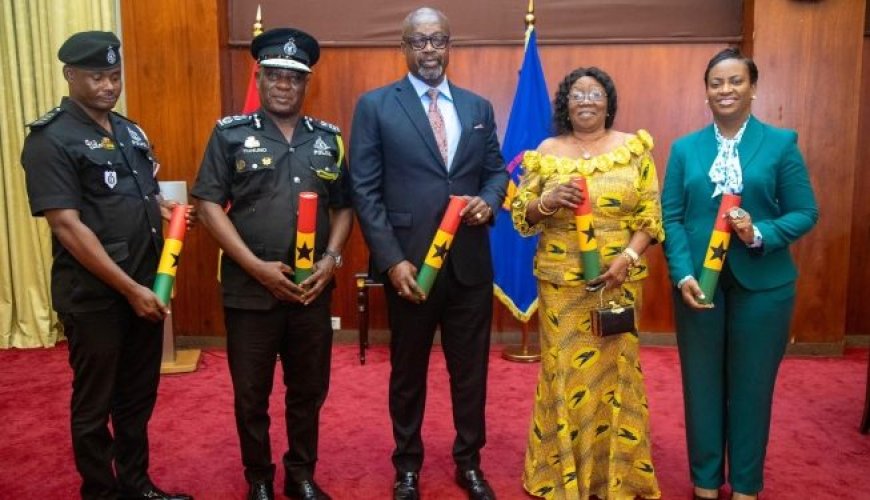Government Sued Over COP(Rtd) Kofi Boakye’s Police Council Appointment

Henritta Nana Yaa Simpson, a Ghanaian citizen and gender activist, has invoked the original jurisdiction of the Supreme Court in a lawsuit challenging what she describes as the unconstitutional appointment of COP (Rtd.) Nathan Kofi Boakye to the Police Council. In the writ filed at the Supreme Court, Ms. Simpson is asking the court to declare the appointment null and void, arguing that the slot designated under Article 201(f) of the 1992 Constitution for a representative of retired senior police officers was illegally filled without recourse to the association’s elected leadership.
She contends that the legitimate nominee of the National Association of Retired Police Officers (NARPO) was ACP (Rtd.) Ms. Florence Arthur, the first female to be elected president of the association. Her nomination, submitted through formal correspondence by her predecessor, was allegedly ignored by the Presidency without acknowledgment or explanation.
Simpson’s suit describes the move as a “naked usurpation” of the Association’s rights and claims it undermines longstanding practice and convention whereby the president of the association automatically represents it on the Police Council. She also alleges the decision to bypass ACP (Rtd.) Florence Arthur may have been influenced by discriminatory views about her rank and gender.
The suit, filed under Articles 2, 130, 17(1), 201, and 296 of the Constitution, seeks multiple declarations, including a clarification that retired senior police officers, as referenced in the Constitution, include those who retired at or above the rank of Assistant Superintendent of Police. It also asks the court to rule that the President has no authority to unilaterally appoint a representative for the association without its input. The plaintiff is further requesting the court to order the removal of Nathan Kofi Boakye from the Council and the installation of ACP (Rtd.) Florence Arthur in his stead.
The suit lists the Police Council and the Attorney-General as co-defendants alongside Mr. Boakye, and it argues that the conduct of the Presidency in this matter undermines constitutional principles of consultation, institutional autonomy, and non-discrimination. The case is expected to test the boundaries of executive power in appointments to public bodies and raise important constitutional questions about gender representation and institutional integrity in Ghana’s governance architecture.







